Search
Search Results
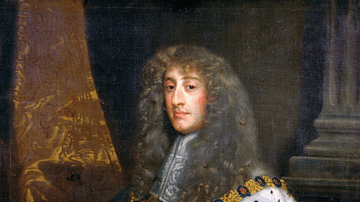
Definition
James II of England
James II of England (r. 1685-1688) reigned briefly as the king of England, Scotland, and Ireland until he was deposed by the Glorious Revolution of November 1688. James, also known as James VII of Scotland, was the fourth Stuart monarch...
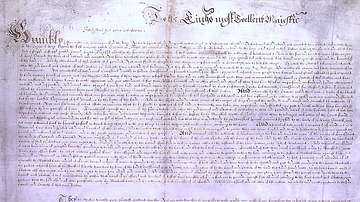
Article
Petition of Right
The Petition of Right was a list of demands of King Charles I of England (r. 1625-1649) issued by Parliament in June 1628. The petition came after three years of disagreements between the king and Parliament over finances, religious matters...

Definition
1811 German Coast Uprising
The 1811 German Coast Uprising (8-11 January 1811) was the largest slave revolt in US history involving between 300-500 enslaved and free Blacks in the Louisiana parishes of St. John the Baptist, St. Charles, and Jefferson in the Territory...

Definition
Rollo of Normandy
Rollo (l. c.860-c.930 CE, r. 911-927 CE) was a Viking chieftain who became the founder and first ruler of the region of Normandy. He converted to Christianity as part of a deal with the Frankish king Charles the Simple (893-923 CE) in 911...

Definition
Sir Thomas Fairfax
Sir Thomas Fairfax, 3rd Baron Fairfax of Cameron (1612-1671), was the first and highly successful commander of the Parliamentarian New Model Army during the English Civil Wars (1642-1651). Fairfax's leadership, tactical prowess, and courage...
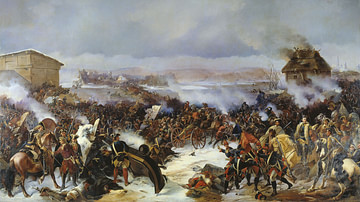
Definition
Great Northern War
The Great Northern War took place from 1700 to 1721 and was fought between Russia and Sweden during the reign of Peter I of Russia (Peter the Great). One of the key causes of the war was Peter the Great’s desire to have territory on the Baltic...
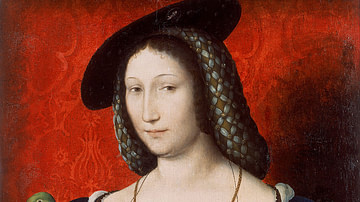
Definition
Marguerite de Navarre
Marguerite de Navarre (l. 1492-1549) was a writer, philosopher, diplomat, and Queen of Navarre, sister of King Francois I (Francis I of France, r. 1515-1547), mother of Jeanne d’Albret (l. 1528-1572) and grandmother of Henry IV of France...
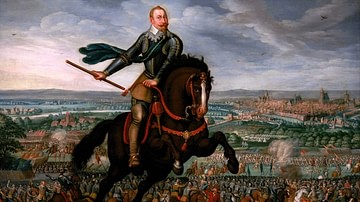
Definition
Gustavus Adolphus
Gustavus Adolphus (l. 1594-1632; r. 1611-1632) was the King of Sweden who elevated his country to a major power in the 17th century. He also is traditionally recognized as the "Father of Modern Warfare" for his military innovations and his...
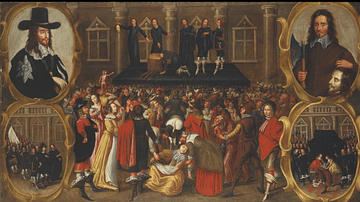
Article
Consequences of the English Civil Wars
The impact and consequences of the English Civil Wars (1642-1651) were many and far-reaching. Charles I of England (r. 1625-1649) was executed, and the monarchy was abolished. Oliver Cromwell (1599-1658) then headed the Republic as the Lord...
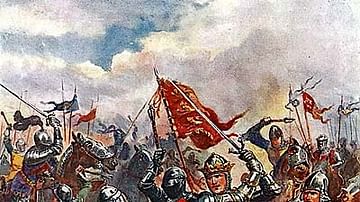
Definition
Battle of Agincourt
The Battle of Agincourt on 25 October 1415 saw Henry V of England (r. 1413-1422) defeat an overwhelmingly larger French army during the Hundred Year's War (1337-1453). The English won thanks to the superior longbow, field position, and discipline...